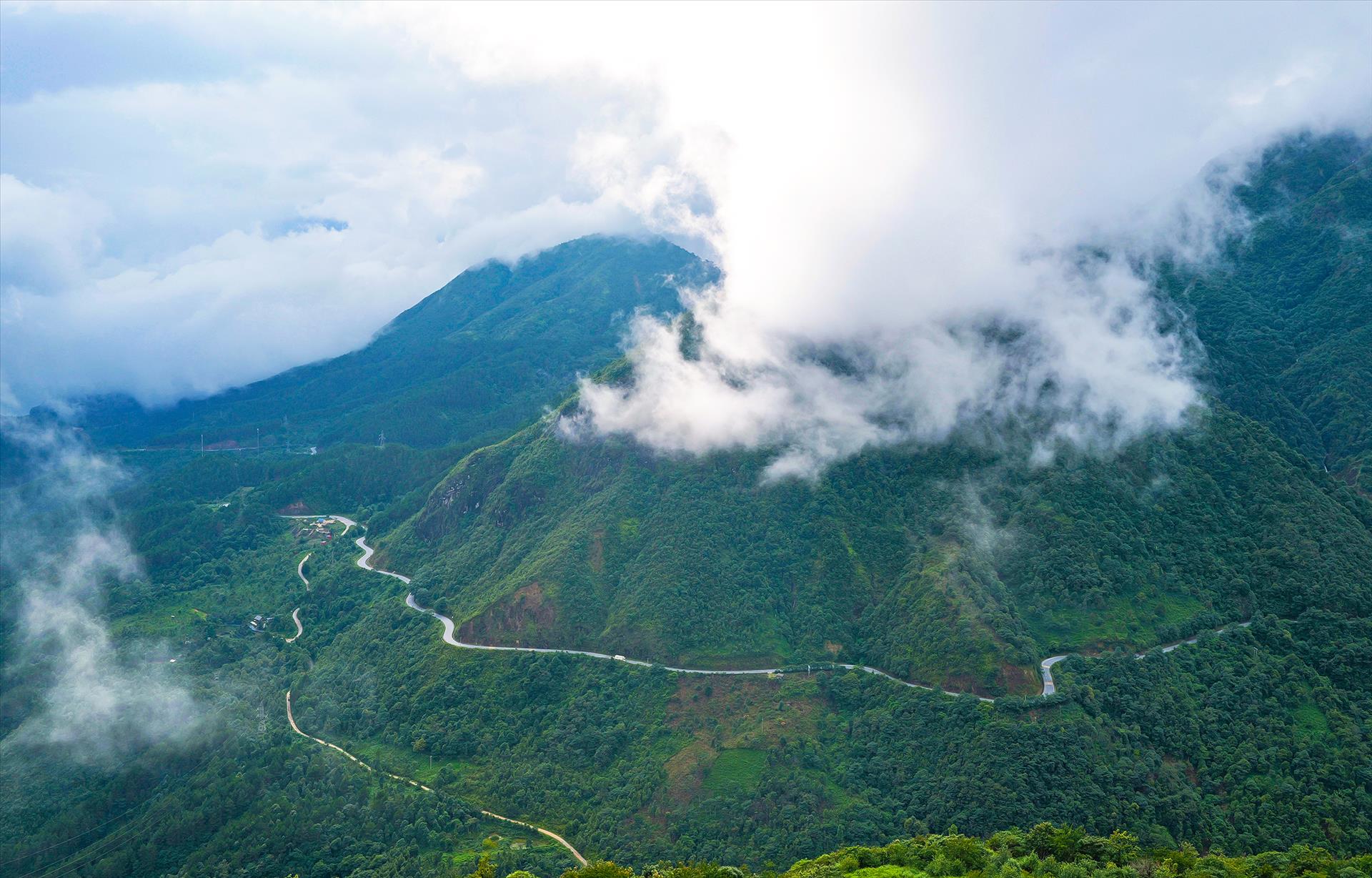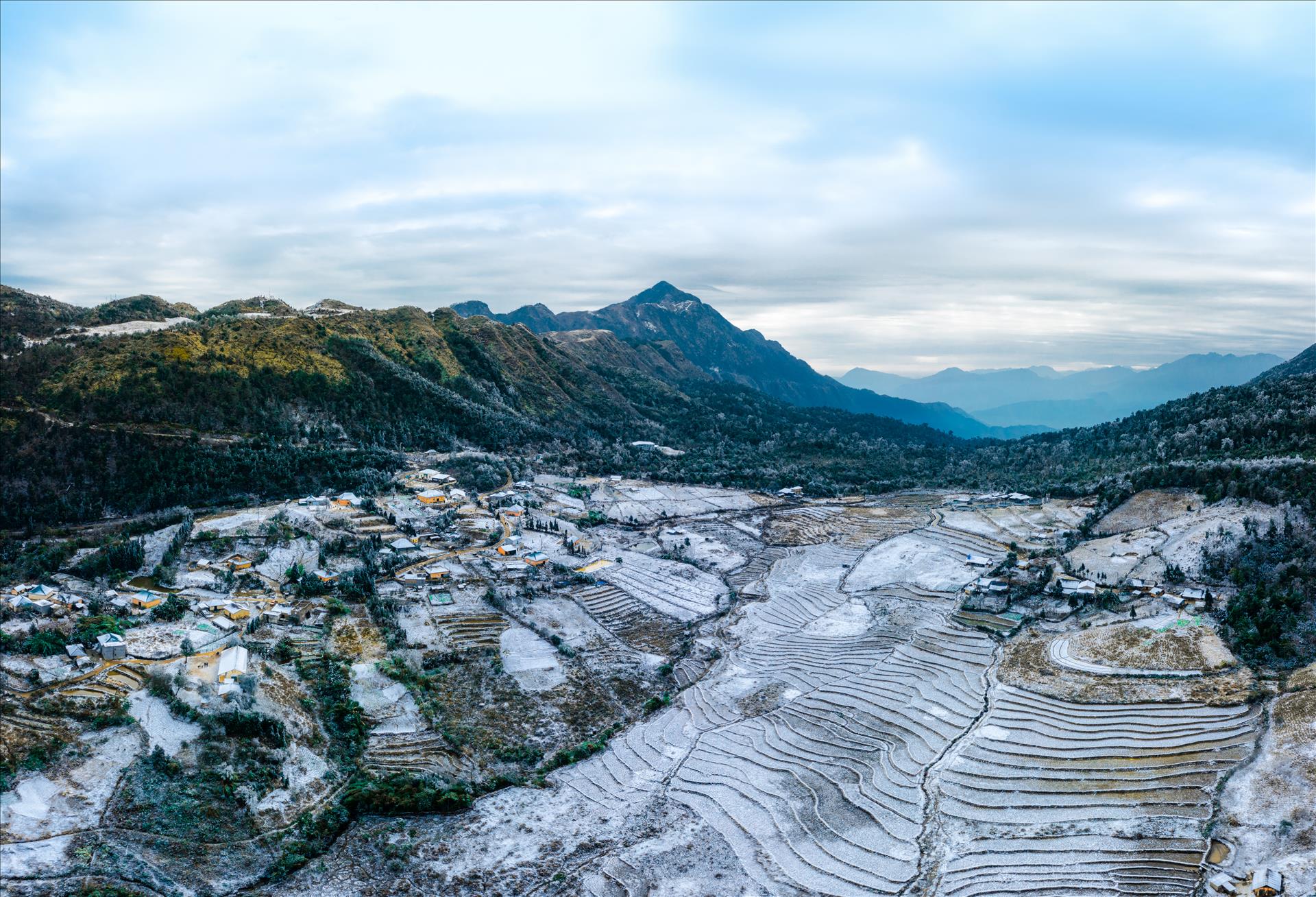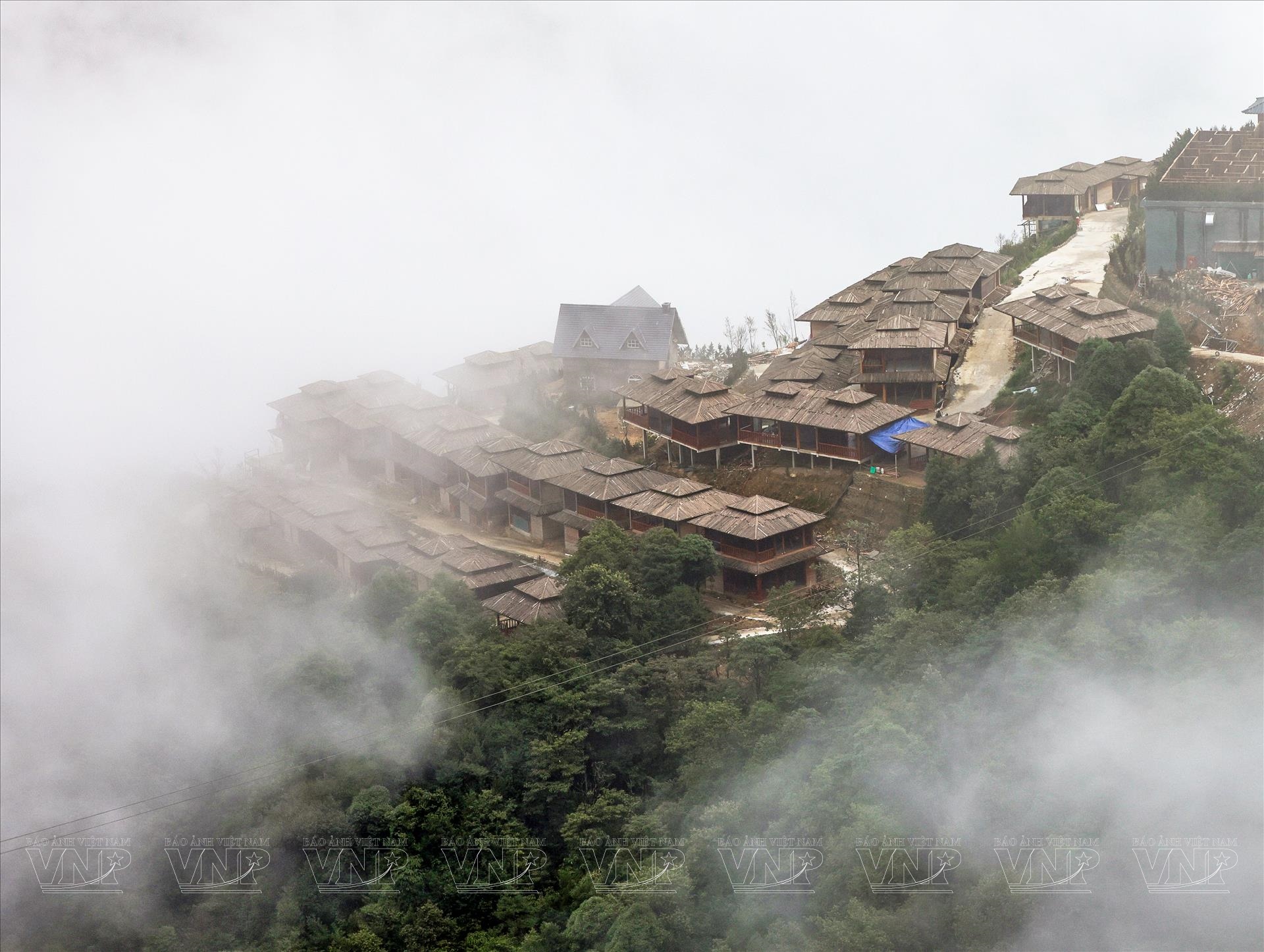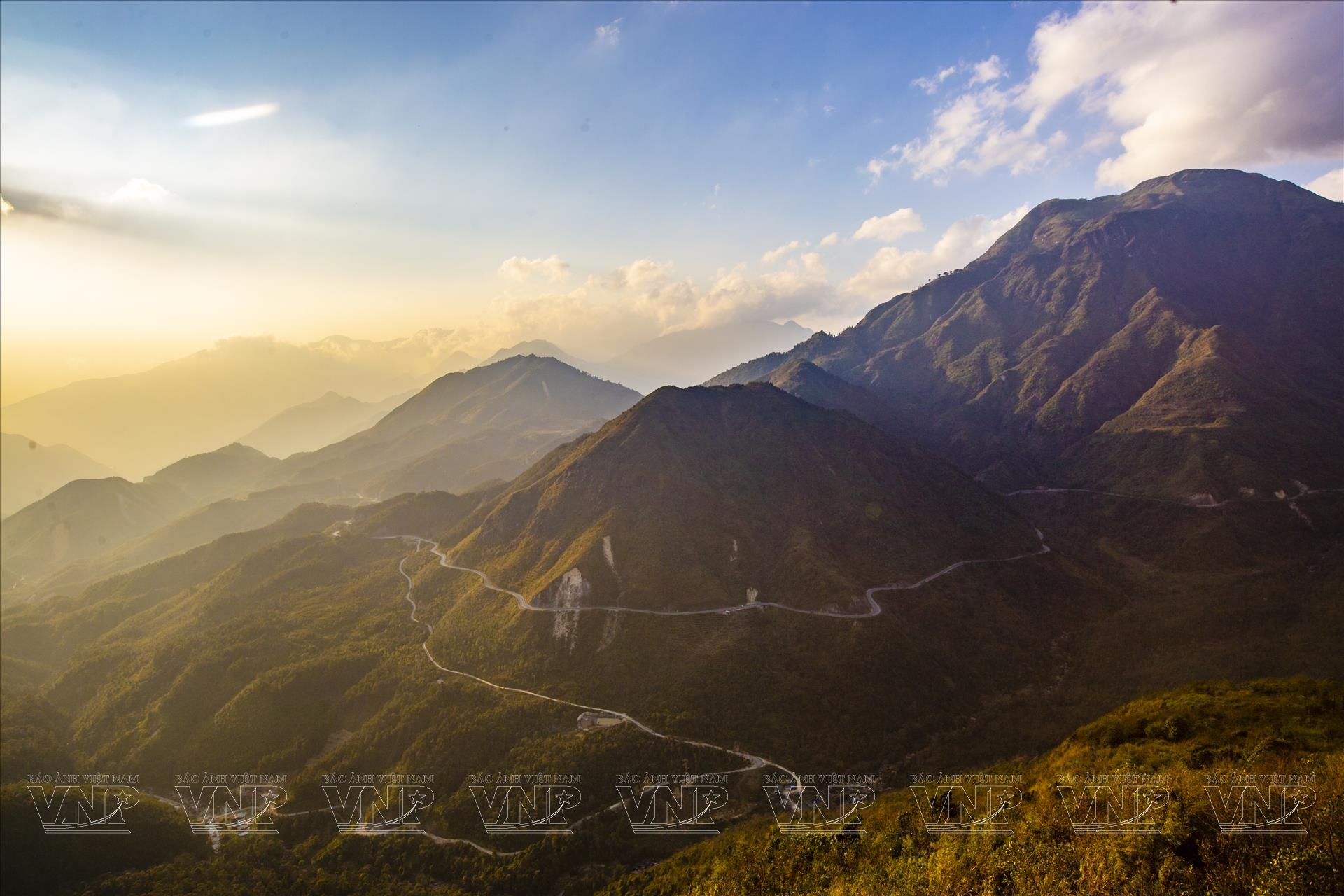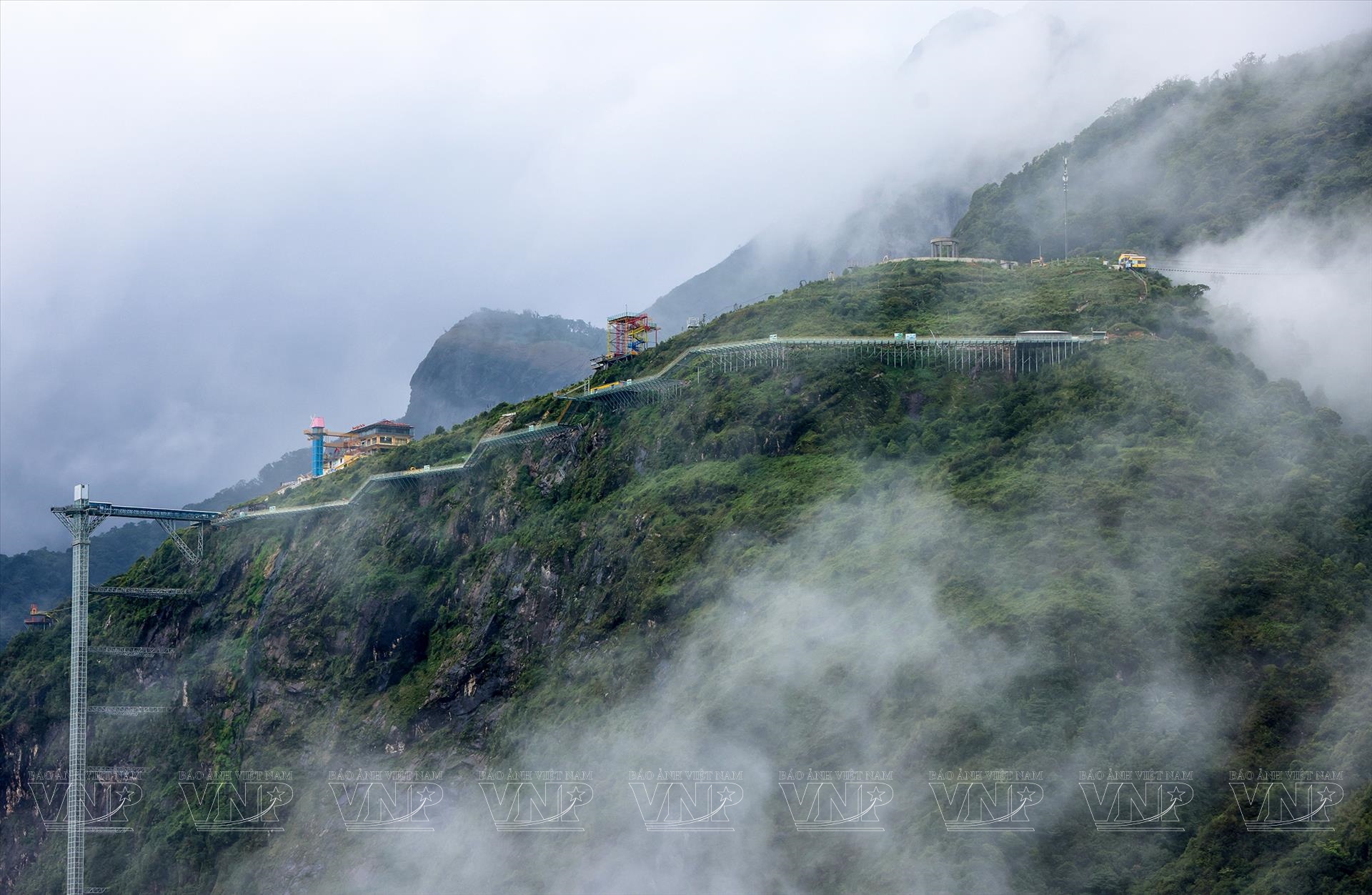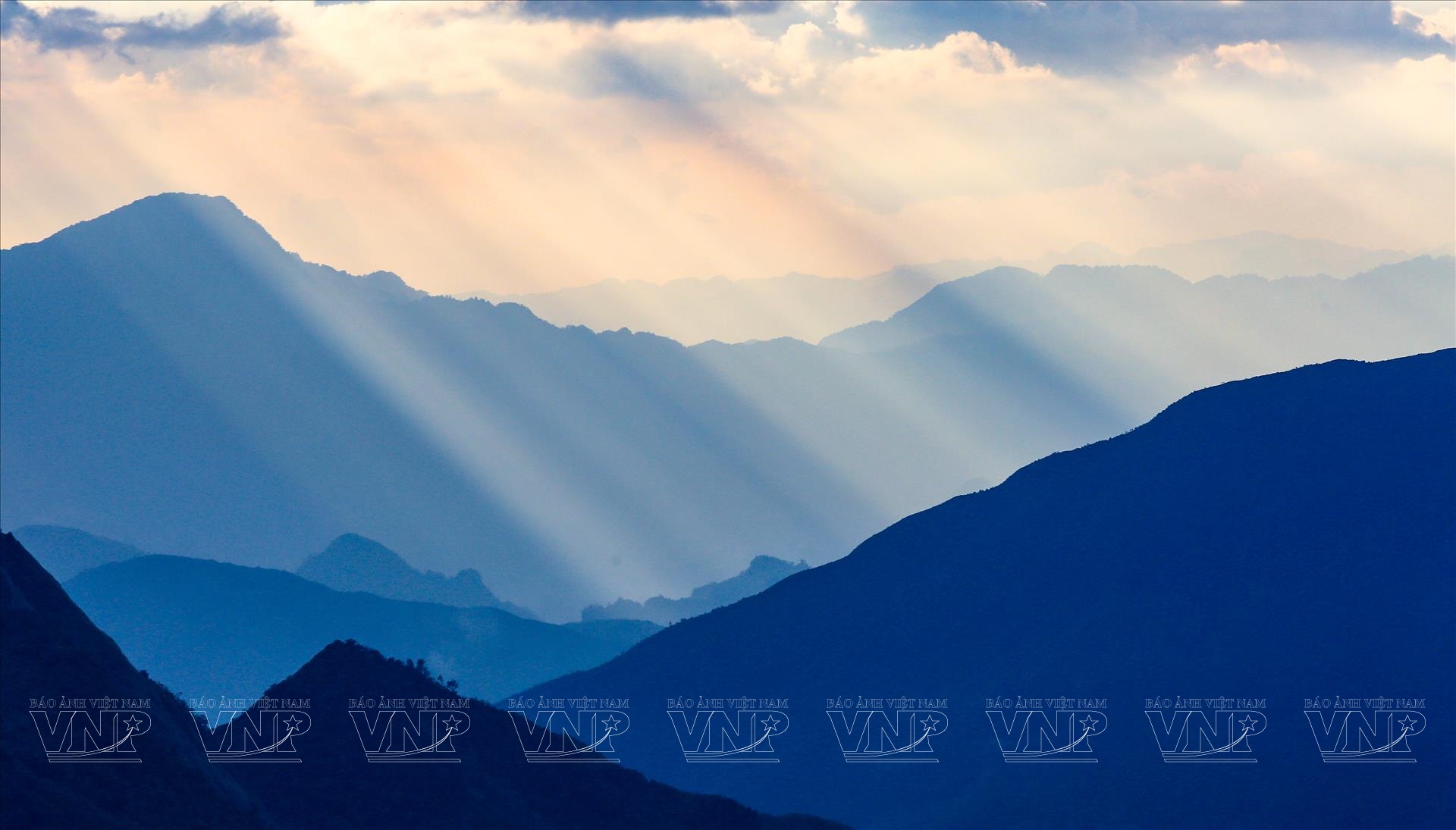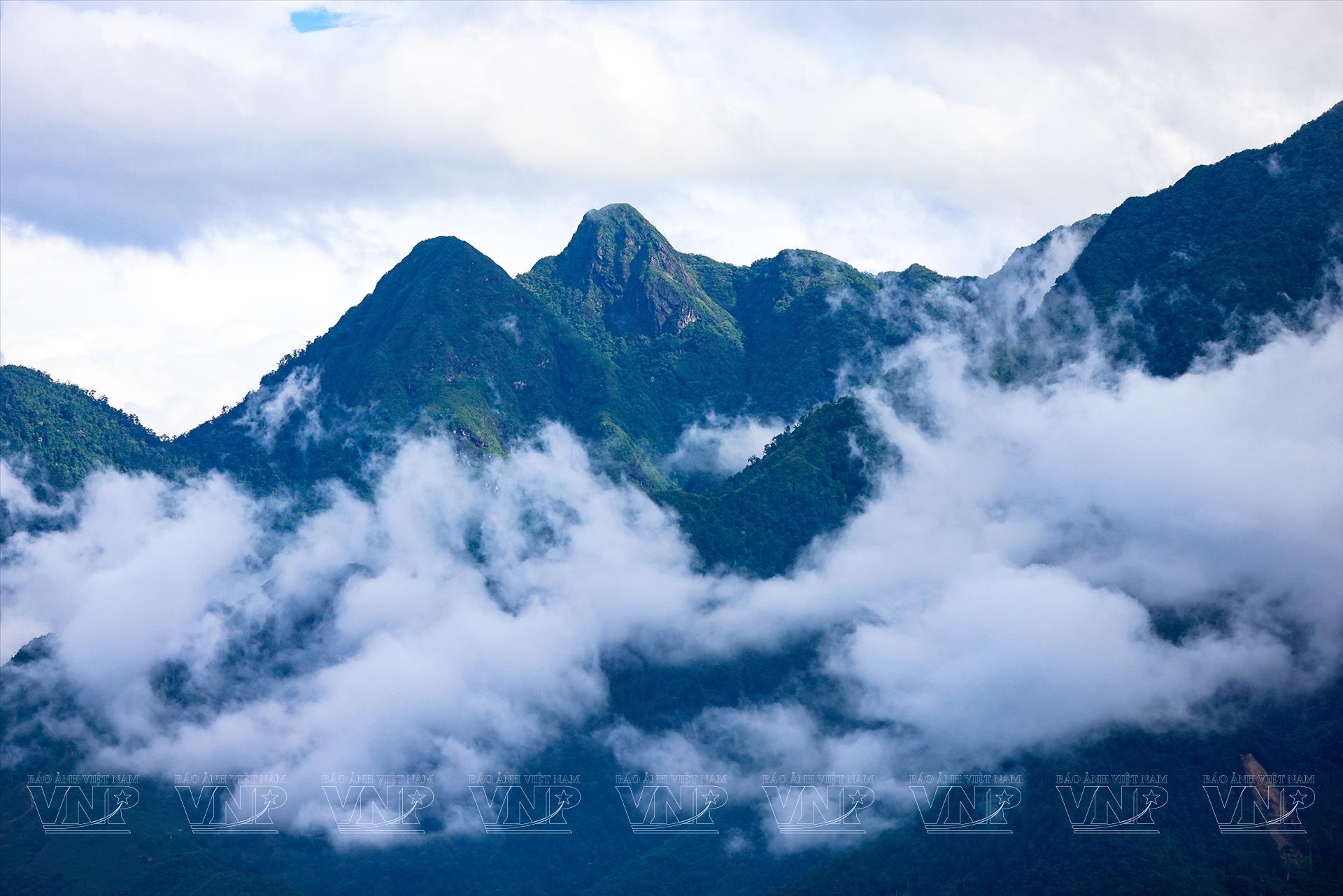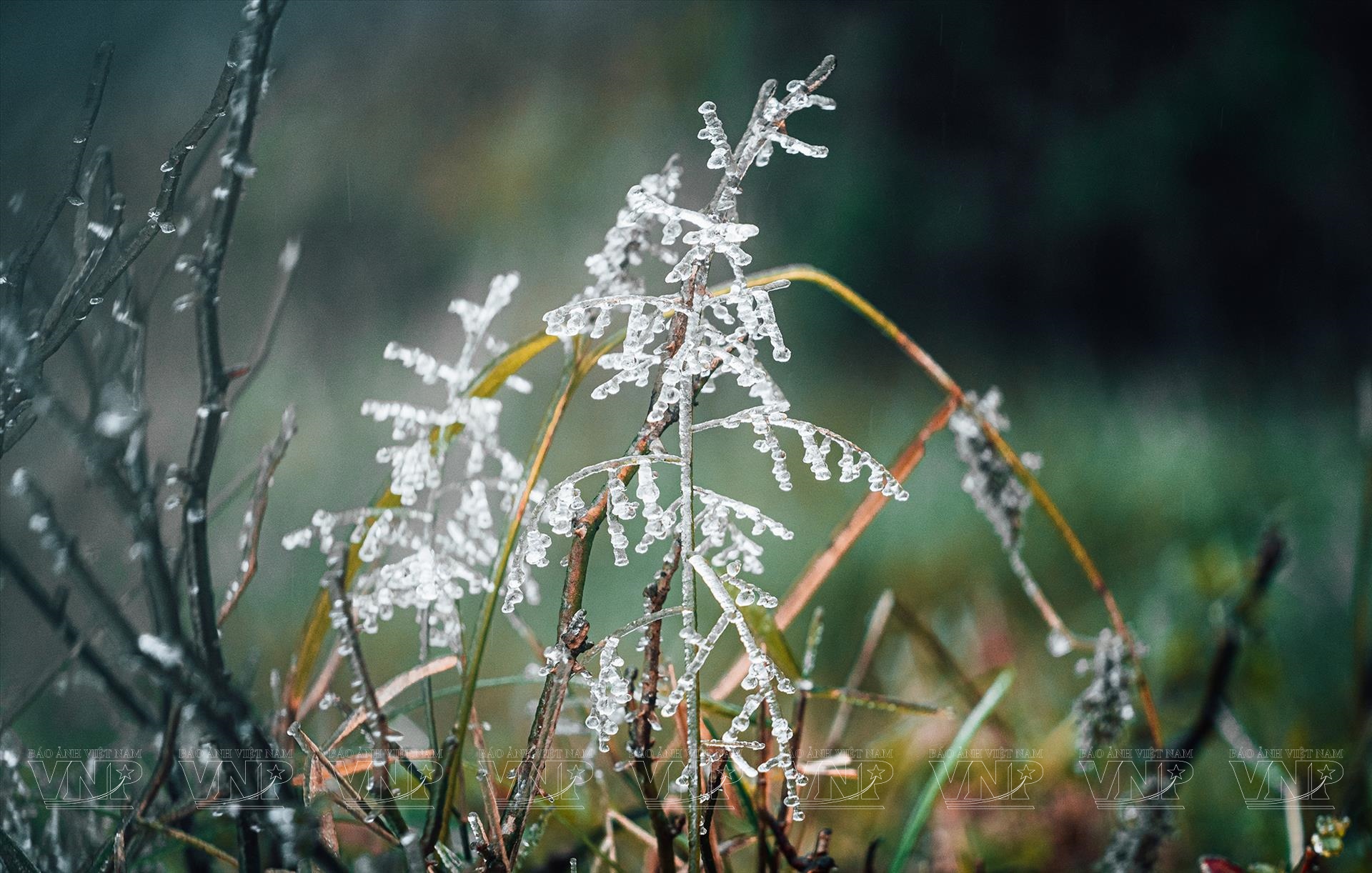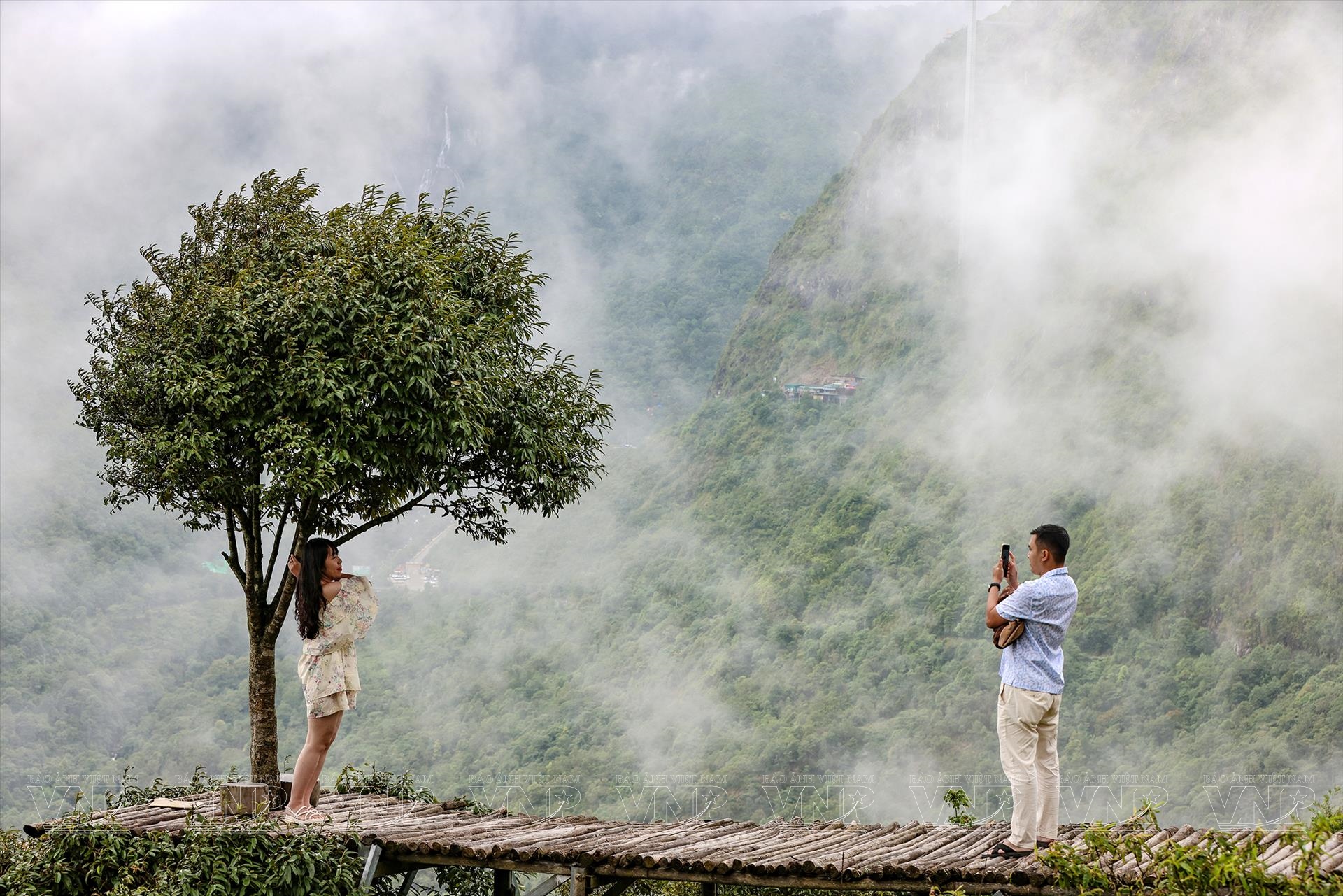O Quy Ho - The Most Dangerous and Majestic Pass in Vietnam’s Northwest
Nestled along Highway 4D near the border between Lao Cai and Lai Chau provinces, O Quy Ho Pass has a length of approximately 50km, earning it the title of Vietnam's longest mountain pass. Local Mong, Dao, and Giay people have woven a tale of tragic love for the pass, which today has emerged as a popular tourist destination renowned for cloud watching, challenging road adventures, and breathtaking natural vistas.
Legend has it that O Quy Ho was the son of the Mountain God. Every day, he went to the mountains to chop firewood, play the flute, and befriend the clouds, wind, and animals. One day, the seven daughters of the Jade Emperor came down to earth on a whim to play and bathe in the waterfall near where O Quy Ho lived. The youngest fairy accidentally heard O Quy Ho's flute and fell in love with him. From then on, O Quy Ho and the fairy often met by the waterfall.
When the Jade Emperor found out, he forbade the youngest fairy to go down to earth and turned O Quy Ho into a black turtle. The youngest fairy, out of passion for her lover, fell ill and died. She turned into a phoenix and flew over the mountain pass every afternoon, calling out in a mournful voice: O Quy Ho! O Quy Ho! Touched by the romantic but unfinished love of the couple, the people named the pass where O Quy Ho used to live, O Quy Ho Pass and the waterfall where he used to meet his lover, Love Waterfall.
• Along with Ma Pi Leng (Ha Giang Province), Khau Pha (Yen Bai Province), Pha Din (located between Son La and Dien Bien provinces), O Quy Ho Pass is one of the four long, dangerous and majestic mountain passes in the Northwest region.
• The top of O Quy Ho Pass, also known as Sapa's Heaven Gate, is about 2km from Tram Ton Forest Ranger Station and is the highest point of the Vietnamese road, about 2,000m
In addition to this legend, many people also call this place Cloud Pass because it is covered in clouds all year round, especially in the afternoons. Standing on the top of the pass, where the two provinces of Lao Cai and Lai Chau meet, one can see white clouds drifting over the mountain peaks and down into the valleys. Visitors feel a sense of great delight as they stand floating on the clouds. Some days, from the top of the pass visitors can admire the panoramic view of the winding road over the mountains, and looking up, visitors can admire the majestic panorama of Fansipan Mountain. From the top of the pass, looking towards Lai Chau Province, visitors can see the undulating mountains and valleys, with the road looking like a thread winding around the mountainside.
The weather is also a special feature of O Quy Ho Pass. In the summer, when the other side of the pass in Sa Pa District, Lao Cai Province, is cool, cold in the afternoon and night, and shrouded in mist, then on this side of the pass, Tam Duong District, Lai Chau Province, is bright sunshine. When winter comes, Tam Duong District is warm and sunny, while Sa Pa is cold, snowy, and foggy. Traveling from one side to the other, no matter what time of year, visitors are amazed by the difference in climate.
For adventurous visitors, O Quy Ho is a must-conquer because it is the most winding and dangerous pass in the Northwest mountains with many adventurous hairpin bends. When visitors stop at the top of O Quy Ho Pass and look towards the horizon, they can see the vastness of the Northwest sky and land. Each time is a very different experience and brings different feelings. On full moon nights, when the sky is clear, the light shines down on the steep cliffs or through the leaves along the road, it is very beautiful and magical.
O Quy Ho Pass is a priceless gift that nature has bestowed on the Northwest. With its sad and beautiful legend and the scenery of clouds all year round, O Quy Ho Pass always urges visitors to explore and experience it./.
Story: Thanh Hoa Photos: Nguyen Thang, Hoang Ha, Tran Hieu, Thong Thien/VNP & Nguyen Cuong Translated by Hong Hanh
